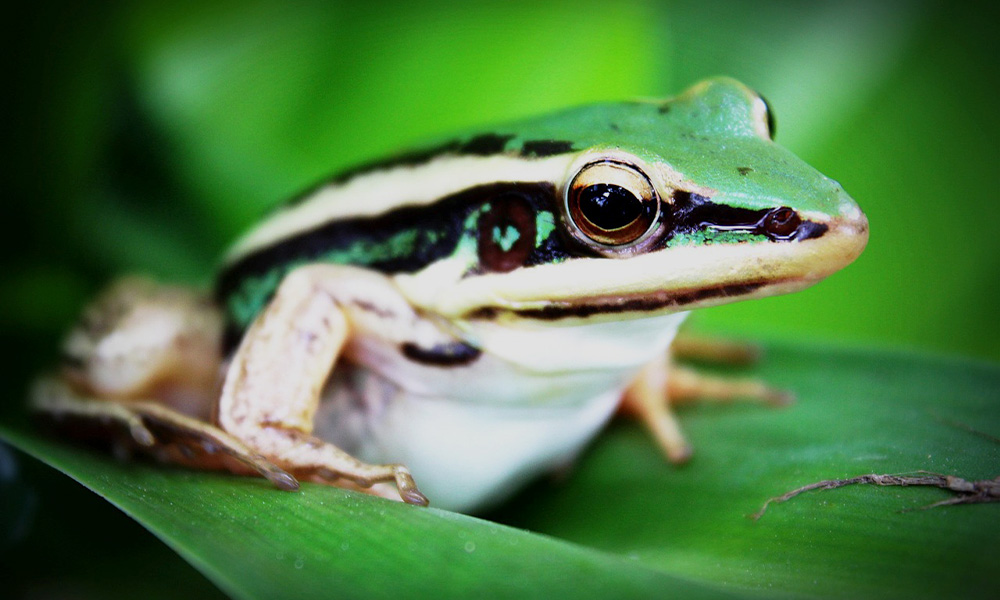Countries on Monday adopted a landmark agreement to reverse decades of environmental destruction threatening the world’s species and ecosystems at a marathon UN biodiversity summit.
Four years after the last agreement and after nearly two weeks of intense and difficult negotiations, members of the Convention on Biological Diversity approved a framework for action proposed by China, the country chairing the meeting, with the only opposition coming from the Democratic Republic of Congo.
“The agreement is approved,” Chinese Environment Minister Huang Runqiu said as he banged his gavel at a plenary session that stretched into the early hours of the morning in Montreal, Canada, an announcement that was greeted with a standing ovation.
From New York, UN Secretary General Antonio Guterres celebrated the agreement: “We are finally beginning to close a peace pact with nature”, he stressed at a press conference.
The text establishes to protect 30% of the planet by 2030 and to provide 30 billion dollars in annual aid for conservation efforts in developing countries.
“Together we have taken a historic step,” said Steven Guilbeault, the environment minister of Canada, the summit’s co-host country.
The Kunming-Montreal Accord is a roadmap aimed at protecting lands and oceans and preventing the mass extinction of species from accelerated pollution.
The creation of protected areas on at least 30% of the planet’s lands and waters, the best known of the 23 targets, has been described as the biodiversity equivalent of limiting global warming to 1.5°C, captured in the 2015 Paris Climate Agreement.
Currently, 17% of the land and 8% of the seas are protected.
The draft mentions the safeguarding of indigenous peoples, guardians of 80% of the Earth’s biodiversity, a demand widely demanded by representatives of these communities at the summit.
As for financing, the aspect that generated most acrimony in the negotiations, the approved text proposes to reach “at least 20 billion dollars” in annual international aid by 2025 and “at least 30 billion by 2030”.
It won’t be enough
“Most people say it’s better than we expected on both sides, both for rich and developing countries. That’s the sign of a good text,” Lee White, Gabon’s environment minister, told AFP.
“Moose, sea turtles, parrots, rhinos, rare ferns are among the million species whose future prospects will be significantly improved” thanks to this pact, added Brian O’Donnell of the NGO Campaign for Nature.
This text is “an important step forward in the fight to protect life on Earth, but it will not be enough,” said Bert Wander of the NGO Avaaz.
“Governments should listen to what the science says and rapidly increase their ambitions to protect half of the Earth by 2030,” he added.
Indeed, scientists warn that time is pressing: 75% of ecosystems are altered by human activity and more than a million species are at risk of extinction.
The previous decade-long pact, signed in Japan in 2010, achieved almost none of its goals, especially due to a lack of enforcement and monitoring mechanisms.
Tensions over funding
Talks over available funding brought tensions to a peak over the course of COP15.
Up to the last minute, representatives of China were still trying to convince the last countries that remained reluctant to accept the financial offer in the draft text, especially several African states.
With Brazil in the lead, dozens of countries of the South were asking those of the North, whom they accuse of having enriched themselves at the expense of their resources, to commit $100 billion a year for conservation.
This represents ten times the current aid for biodiversity.
In addition to subsidies, developing countries also sought the creation of a global fund dedicated to biodiversity like the one approved in November in Egypt to help them cope with climate damage.
Instead, China made a commitment to devote part of the current Global Environment Facility (GEF) to biodiversity from 2023 onwards, the current functioning of which is considered very poor by the countries of the South.






